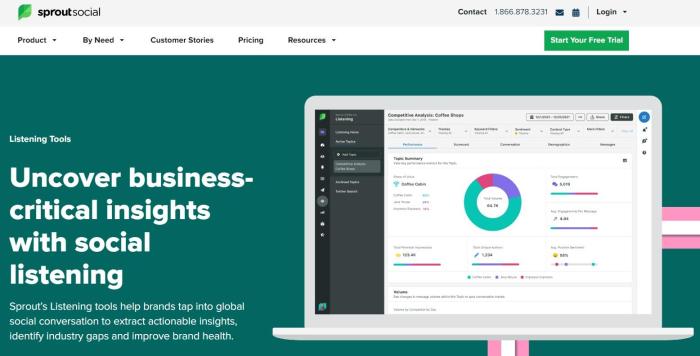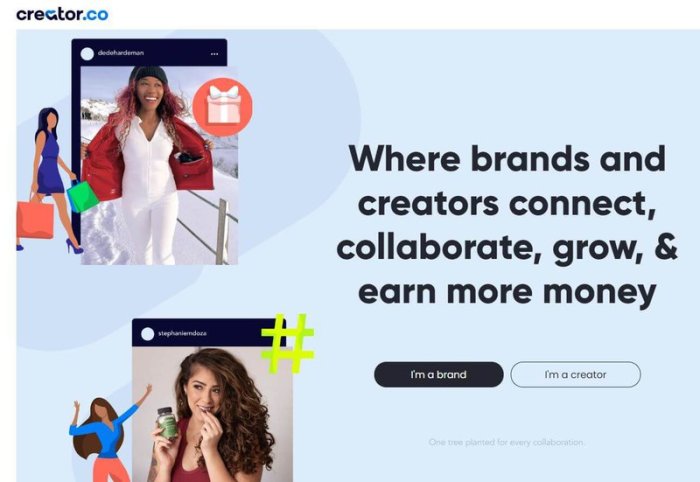Influencer marketing software tools are revolutionizing the way brands connect with audiences, enabling marketers to streamline their outreach and optimize partnerships. With the evolution of digital marketing, these tools have emerged as essential assets, helping businesses adapt to the dynamic landscape of influencer collaborations. The significance of such software lies not only in its ability to enhance marketing strategies but also in its capacity to deliver measurable results through data-driven insights.
As influencer marketing continues to grow, the role of software tools becomes increasingly vital. These tools facilitate influencer discovery, campaign management, and performance analytics, allowing marketers to effectively engage with influencers and track the success of their campaigns. With user-friendly interfaces and powerful analytics features, these tools are designed to meet the diverse needs of modern marketers navigating the complexities of influencer partnerships.
Introduction to Influencer Marketing Software Tools
Influencer marketing software tools have become an integral part of modern marketing strategies, allowing brands to connect with influencers effectively. These tools streamline the process of identifying, engaging, and managing influencers, ultimately enhancing the impact of marketing campaigns. The rise of social media platforms has spurred the evolution of influencer marketing, and software solutions have played a crucial role in this transformation.
The evolution of influencer marketing can be traced back to a time when brands relied heavily on traditional advertising methods. However, with the advent of social media, the landscape changed dramatically. Influencer marketing emerged as a potent strategy, leveraging the reach and authenticity of social media personalities. As this field grew, dedicated software tools evolved to help marketers navigate the complexities of influencer collaborations, making these tools essential for optimizing campaign performance and achieving measurable results.
Key Features of Influencer Marketing Software
Essential features of influencer marketing software tools are designed to enhance the effectiveness of influencer campaigns. Among these features are:
- Influencer Discovery: Tools that help brands find the right influencers based on niche, audience demographics, and previous performance.
- Campaign Management: Functionality that allows marketers to plan, execute, and manage campaigns seamlessly.
- Analytics and Reporting: Robust analytics capabilities that provide insights into campaign performance, engagement metrics, and ROI.
- User-Friendly Interface: Intuitive designs that make it easier for marketers to navigate the software and utilize its features effectively.
The importance of analytics and reporting cannot be overstated; they allow marketers to assess the success of their campaigns and make data-driven decisions. A user-friendly interface significantly impacts software adoption, as it reduces the learning curve and encourages more team members to engage with the platform.
Types of Influencer Marketing Software Tools

The market is flooded with various types of influencer marketing software tools, catering to different aspects of influencer collaborations. Key categories include:
- Influencer Discovery Tools: These tools specialize in helping brands identify potential influencers based on specific criteria. For example, platforms like AspireIQ and Upfluence offer extensive databases of influencers for brands to choose from.
- Campaign Management Tools: Software such as HypeAuditor and CreatorIQ focus on managing campaigns from inception to completion, tracking progress and ensuring that goals are met.
- Performance Analytics Tools: Tools like Socialbakers provide deep insights into the effectiveness of influencer partnerships, focusing on metrics like engagement and conversion rates.
- Engagement Metric Tools: Platforms that analyze how audiences interact with influencer content, helping brands understand the qualitative aspects of their campaigns.
Each type of tool serves a distinct purpose, allowing marketers to select solutions tailored to their specific needs and objectives.
Benefits of Using Influencer Marketing Software

Utilizing influencer marketing software offers numerous advantages for brands looking to optimize their influencer strategies. These tools:
- Streamline the influencer selection and outreach process, enabling brands to connect with relevant influencers quickly and efficiently.
- Provide cost-effective solutions compared to traditional marketing methods, allowing marketers to allocate budgets more effectively.
- Aid in tracking ROI from influencer partnerships, facilitating better financial planning and strategy adjustments.
By simplifying these processes, brands can focus on creating impactful campaigns that resonate with their target audiences.
Challenges in Influencer Marketing Software Implementation

While influencer marketing software tools provide significant benefits, businesses often face challenges during implementation. Common obstacles include:
- Resistance to Change: Teams accustomed to traditional marketing methods may be hesitant to adopt new software.
- Integration Issues: Ensuring that the software integrates seamlessly with existing marketing platforms can be complex.
- Data Management: Effectively managing and analyzing the vast amounts of data generated can overwhelm teams.
To overcome these challenges, it is essential to provide adequate training and ongoing support for users, ensuring they feel confident in utilizing the software to its full potential.
Best Practices for Utilizing Influencer Marketing Software
To maximize the effectiveness of influencer marketing software, brands should follow best practices that enhance campaign outcomes:
- Define Clear Objectives: Establishing specific goals for influencer campaigns will provide direction and measurable outcomes.
- Select the Right Tool: Choosing software that aligns with the brand’s marketing needs and team capabilities is critical for success.
- Regularly Analyze Performance: Utilizing analytics features to track campaign progress allows brands to make timely adjustments and optimize efforts.
Following these guidelines will help brands leverage influencer marketing software effectively, ultimately driving better results.
Future Trends in Influencer Marketing Software
The future of influencer marketing software tools is being shaped by several emerging trends. Key developments include:
- AI and Machine Learning: The integration of AI technologies is set to enhance influencer discovery and campaign optimization.
- Enhanced Analytics: Future tools will provide even more sophisticated analytics capabilities, allowing for deeper insights into audience behavior.
- Real-Time Engagement Metrics: Tools will increasingly focus on providing real-time data, enabling brands to respond quickly to campaign performance.
Forecasting the evolution of influencer marketing software over the next five years suggests a shift towards more automated, data-driven solutions that will streamline processes and enhance decision-making capabilities for marketers.
Case Studies of Successful Influencer Marketing Software Use, Influencer marketing software tools
Several brands have effectively leveraged influencer marketing software to achieve notable results. Examples include:
- Brand A: Utilized HypeAuditor to identify micro-influencers within their niche, resulting in a 150% increase in engagement rates across campaigns.
- Brand B: Employed CreatorIQ for a comprehensive campaign management strategy, leading to a 30% boost in sales during a promotional period.
- Brand C: Integrated analytics tools from Socialbakers, which enabled them to refine their influencer strategy and improve overall campaign ROI by 25%.
These case studies exemplify how strategic use of influencer marketing software can drive significant business outcomes, demonstrating the value of integrating these tools into marketing strategies.
Ending Remarks
In conclusion, the adoption of influencer marketing software tools is reshaping how brands engage with influencers and measure the impact of their marketing efforts. By understanding the key features, benefits, and best practices associated with these tools, businesses can unlock new opportunities for growth and connection. As the landscape of influencer marketing evolves, staying informed about emerging trends and successful case studies will empower marketers to leverage these tools effectively and achieve remarkable results in their campaigns.